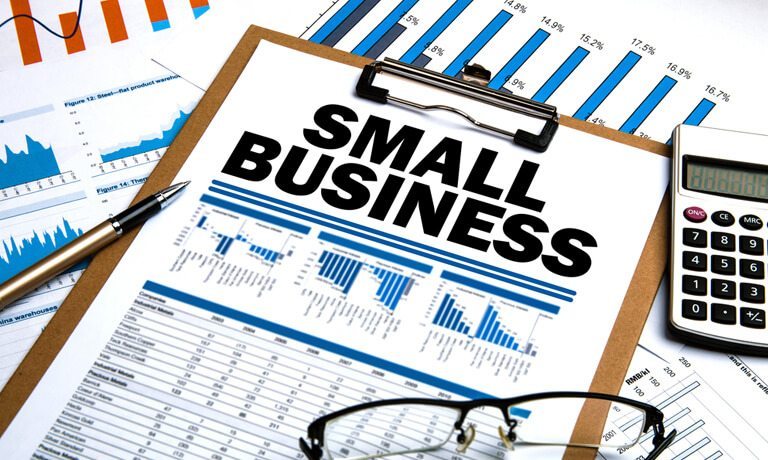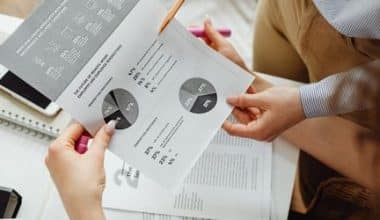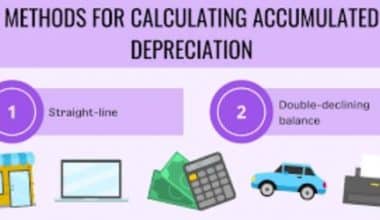Small Business Accounting UK
Accounting is keeping track of, recording, and evaluating your business’s financial transactions. It converts numbers into an understandable statement about your company’s profitability. This generally makes it one of the most important aspects of a business setup. But, on the flip side, it is also the most time-consuming. You literally have to deal with tons of cash flow problems and heaps of paperwork. The advent of technology however makes the accounting process and cycle less tedious. Now in the UK and across the globe, there are over a thousand and one online solutions for small business accounting.
A list of these solutions is, however, beyond the scope of this post. It has been covered in a different post.
Meanwhile here’s what’s within the scope of this post;
- A Rundown of what small business accounting entails
- The components of small business accounting
- How a small business accounting cycle should look like for businesses in UK and across the globe
- How to prepare your small business accounts
With all of these in place, let’s jump right in…
Note: This article will focus on the UK as a case study even though the practices mentioned are generic.
What Is Accounting For A Small Business?
Simply put, small business accounting is a system that tracks purchases, sales, liabilities, and payments. It’s a big subject, but for small firms, it really boils down to:
- keeping track of cash (recording financial transactions)
- preparing financial statements
- returns to the IRS (Internal Revenue Service)
Accounting aids in determining the health and value of a business. It basically allows you to make more knowledgeable decisions about short- and long-term success.
Accounting Terms You Should Be Familiar With
As a small business owner in the UK, you’ll frequently encounter the following accounting and bookkeeping terms:
- Revenue/Income: Money your business earns from the sale of goods or services, as well as other commercial activities.
- Expenses: Costs you incur to generate revenue, such as rent, labor, and office supplies.
- Accounts Payable: Any debt owed by your company. This could be debt your business owes a lender, creditor, vendor, freelancer, or other third party. And because accounts payable are a type of debt, they often fall under liabilities on your balance sheet.
- Accounts Receivable: Money due to your company by customers, clients, or anybody else with whom you do business. On a balance sheet, accoutants refer to these as “assets.”
- Liquid and Non Liquid Assets: Examples include land, equipment, accounts receivable, stocks, and patents your business contools.
- Liabilities: Company debts and obligations, such as business loans, accounts payable, income taxes, and mortgage payments.
- Equity: The result of subtracting liabilities from assets.
- General Ledger: A housing for the comprehensive record of all company transactions, such as sales, expenses, and credit. This is often an integral component when creating financial statements.
- Journal Entries: Accountants and bookkeepers produce journal entries to keep the general ledger up to date. A unique reference number, transaction date, debit or credit amount, and description all go with each entry.
- Trial balance: An accounting report that shows the balances of all accounts in the general ledger. It categorizes them as debits or credits. Furthermore, the three different types of financial reports ae useful in checking for mathematical faults.
Read Also: ACCOUNTS PAYABLE GUIDE SIMPLIFIED! (+ Detailed formula breakdown)
Financial Reporting for Small Businesses
Meanwhile, you can find the three most common financial reports companies have to deal with at some point below. They’re made by accountants utilizing your company’s bookkeeping records.
These reports (or ‘projections’) are crucial if you plan to expand. This is because they often come in handy when investors want to determine if investing in your company is a worthwhile investment.
- Balance Sheet: For a given time period, it summarizes your company’s assets, liabilities, and owner or shareholder equity.
- Income Statement: This statement summarizes your company’s revenues and expenses over a period of time. A profit and loss statement is another name for an income statement.
- Cash flow statement: A cash flow statement summarizes your company’s cash inflows and outflows over a specific time period as a result of sales, expenses, and other investments.
Now that we have this out of the way, let’s go through how to set up a complete small business accounting system (online or offline); also applicable in the UK.
Basically, a simple method is the foundation for accurate accounting.
You’ll inevitably have more accounting demands as your firm grows. If you want to grow your firm, you’ll need an accounting system that can help you scale up.
Let’s go over the various approaches to accounting and bookkeeping for your business.
The Difference Between Cash and Accrual Accounting
Every organization must choose between cash and accrual accounting. Once that decision is made, things tend to become a little clearer.
- Cash Method: In cash-basis accounting, transactions are only recorded when you have received payment for goods or services. It’s the simplest strategy to use and provides a clear view of your company’s cash flow. It’s not, however, always the most appropriate for larger companies.
- Accrual Method: In accrual accounting, transactions are recorded when goods or services are traded, even if payment has not yet been received. This strategy is popular among businesses that have a large amount of inventory. It provides a more realistic picture of your company’s present financial state. In addition, the UK GAAP mandates accrual accounting. But, on the other hand, a bookkeeper or a certified public accountant (CPA) can assist you in determining which strategy is appropriate for your company.
How to Account For a Small Businesses in the UK and Across the Globe
Here’s how to set up your small business’s basic accounting cycle.
#1. Create a Separate Bank Account for Yourself
To keep your business and personal finances distinct, open a separate bank account. A business checking account, as well as a savings account, will assist you in organizing your revenue and planning for taxes at the end of the year.
#2. Keep track of all of your Income and Expenses
The basis of a solid small business accounting system is learning how to track and record business transactions. The reference papers assist you in keeping track of your deductible expenses (tax deductions), preparing financial statements and tax returns, and tracking your business’s progress.
It’s crucial to remember that you should only keep track of expenses that are directly relevant to your business. Invoices, canceled checks, purchase orders, and other business documents are examples.
#3. Decide on an Accounting Method
You must first choose an accounting method for your firm before you can set up a bookkeeping system. The cash vs. accrual basis of accounting are the two basic techniques of recording accounting transactions. When you receive or pay cash, you record income and costs using cash-basis accounting.
In accrual accounting, transactions are recorded using the double-entry method, which requires two entries for each transaction. Expenses and income are recorded when they are incurred, not when the money is exchanged.
Read Also: Double-Entry Accounting Explained!!! Definition, How it Works, & Examples
#4. Trial Balance Transactions
Transactions are documented as journal entries in a double-entry accounting system. The journal records the sums debited and credited, transaction dates, and explanations of the transactions in chronological order.
After that, the journal’s balanced entries are uploaded to the general ledger. Changes are made to the ledger and the trial balance is created based on previous transactions and current balances.
#5. Create a Trial Balance that has been Adjusted
Adjusting journal entries to account for periodic expenses and income if you’re utilizing the accrual method of accounting is next in line. When rent is paid for the entire year, for example, a monthly adjusting entry should be made to account for the expense. This guarantees that the income and expenses for the period represented in the financial statements are accurately matched.
An adjusted trial balance is created after the adjusting entries have been made to ensure that the debits and credits match the adjusted entries. The most accurate record of your financial behavior is an adjusted trial balance.
Read Also: TRIAL BALANCE: What is Trial Balance & How Does it Work?
#6. Create the Financial Statements
You can now generate the financial statements for your business, including the income statement, statement of cash flow, statement of retained earnings, and balance sheet, after you’ve completed the adjusted trial balance.
#7. Close and reconcile your books
Making post-closing entries is the final step in the accounting cycle. This is used to zero out temporary account balances and resume the accounting cycle. In other words, to capture the transactions for the next period, income and expense accounts must be closed.
If you’re new to accounting and find the process overwhelming, consider contacting professionals. On the other hand, online small business accounting software, which automates these steps and makes bookkeeping much easier.
How Do You Keep Small Business Accounts in the UK?
It may appear complex, but keeping records for your business is not as difficult as it appears when you remember the essential accounting goals; to keep track of your expenses and gather financial data for tax preparation.
This may be broken down into three simple steps.
Keep track of your company’s sales and purchases with receipts: These receipts will include the amount, date, and other information needed to construct transaction summaries.
Keep track of your receipts in a ledger: This is just a summary of your revenue, expenses, and every other thing you’re keeping track of.
Combine data from your ledgers to create financial reports: The profit and loss forecast, the balance sheet, and the cash flow analysis are among the most important reports. These reports provide more information about the company’s financial health.
Conclusively
Take a step back after you’ve finished your reports and start streamlining your systems. It might be time to talk to your customers about setting realistic expectations. Efficient bookkeeping allows you to spot a pattern and make the necessary changes to your business model.
Small Business Accounting UK FAQs
How much is an accountant for a small business UK?
For a conventional set of accountants (including submission to Companies House), most small firms should anticipate paying roughly £500 per year; however, the price is entirely dependant on your company’s state.
What does an accountant do for a small business UK?
Accountants are more versatile than you might imagine. They basically provide strategic counsel and suggest innovative ways to save money or increase income. They’ll also eliminate or automate administrative activities that prevent you from focusing on your core business. You’ll be able to run your business with more clarity and confidence if you hire an accountant.
Can I do my own small business accounting?
Not only is it possible for business owners to do their own accounting, but it is also easier now than it has ever been in modern business history.
How much money does an accountant make UK?
New graduates in the field can expect to earn up to £30,000 per year. The average earning potential while training is up to £60,000. A chartered accountant’s average annual pay is £84,500, with an average yearly bonus of £17,300.
{
“@context”: “https://schema.org”,
“@type”: “FAQPage”,
“mainEntity”: [
{
“@type”: “Question”,
“name”: “How much is an accountant for a small business UK?”,
“acceptedAnswer”: {
“@type”: “Answer”,
“text”: “
For a conventional set of accountants (including submission to Companies House), most small firms should anticipate paying roughly £500 per year; however, the price is entirely dependant on your company’s state.
“
}
}
, {
“@type”: “Question”,
“name”: “What does an accountant do for a small business UK?”,
“acceptedAnswer”: {
“@type”: “Answer”,
“text”: “
Accountants are more versatile than you might imagine. They basically provide strategic counsel and suggest innovative ways to save money or increase income. They’ll also eliminate or automate administrative activities that prevent you from focusing on your core business. You’ll be able to run your business with more clarity and confidence if you hire an accountant.
“
}
}
, {
“@type”: “Question”,
“name”: “Can I do my own small business accounting?”,
“acceptedAnswer”: {
“@type”: “Answer”,
“text”: “
Not only is it possible for business owners to do their own accounting, but it is also easier now than it has ever been in modern business history.
“
}
}
, {
“@type”: “Question”,
“name”: “How much money does an accountant make UK?”,
“acceptedAnswer”: {
“@type”: “Answer”,
“text”: “
New graduates in the field can expect to earn up to £30,000 per year. The average earning potential while training is up to £60,000. A chartered accountant’s average annual pay is £84,500, with an average yearly bonus of £17,300.
“
}
}
]
}







